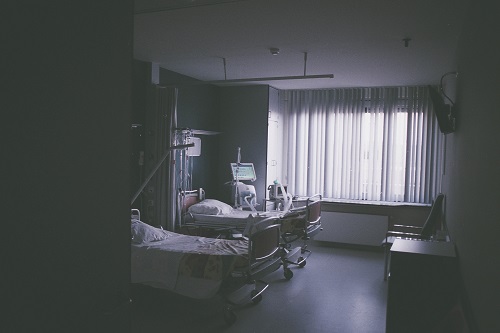Daan Stevens photo
By
Hazel Speed
The Labour Party are requesting that the Government gives an additional £500 Million to the NHS in anticipating extra demands on its services this winter. What about after that?
‘Injecting’ more money is treating the symptom, but not the cause, nor is it the cure.
I have written previous articles on the issues, and part solution, but outline them again now.
First of all, there is an underlying problem which, if it were to be addressed, would save wasted money, thus enabling its redirection to the right people.
I am referring to high instances (at certain hospitals, but not all), of abuse and neglect. This can be so prolific in some geographical areas, that elderly and vulnerable people advise their Alarm Link Line Company contacts from their homes, that in emergency situations they prefer to die at home rather than go to a specific hospital for more of their ‘cruelty.’
These stories are true and accounts are traumatic. Often the hospitals are aware of some culprits but do nothing. In-patients dare not complain while being ‘cared’ for as if they had bad treatment to start with, then it would be worse after a complaint. It seems often to be the case (albeit not exclusively), that the extremely vulnerable are elderly people who have no family, no visitors, so nobody to speak up when they see maltreatment.
One sure way to stop this overnight (with absolute proof), would be voice activated audio-video cameras worn by all staff, nurses and doctors. This way, every interaction would be recorded along with details of what medicines were given and when, as well as content of all conversations with patients. This system should also extend to out-patient, GP and Council Offices, Libraries, indeed all Government related agencies, whether national or local.
Some hospitals have computer systems which monitor every aspect of treatment for each patient, but there is no recording of conversations with patients nor between medical staff about a patient.
If a patient wishes a copy record (disk/memory stick) of their stay, then for a fair fee (or free for low earners), one should be made available. This could be via an annually renewable licence between NHS and reputable third party contractor, under certain guidelines.
As with the Police, following their trials of voice activated audio and visual recordings, complaints would decrease and the truth of every situation would be on record.
Within the NHS, neglect and bullying would be a thing of the past, as the truth of such a charge would be verifiable. Any guilty staff, of whatever level, would be liable for instant dismissal – even the Unions could not raise a complaint about such action. That, in turn, would mean that money would go to dedicated staff who are worthy of public support and higher wages.
Bed blocking is also known to be claimed against the Government but again, there are reliable accounts where some staff deliberately refuse to let people go home (especially at weekends), even when they would be safe to do so, want to do so, and would also be safe when they returned home. This, despite other patients waiting for their beds and Government stipulations to allow patients to be discharged over weekends. So it is alright to blame the Government and the elderly for blocking beds, but sometimes it is hospital staff playing the political system.
These days, sadly, the public and/or patient is hardly ever consulted. Even at GP level, time is of a premium during appointments, so gone are the days of asking a patient how they feel, nor are they given the former type of annual assessment.
Likewise, in hospitals, when patients outline conditions they may have lived with for decades and therefore know all about them, then whatever may be said to a Consultant is often dismissed as they are not the ‘specialist’ – even if such specialists cannot know everything about all conditions.
So attitudes of thinking, and interacting properly with patients, need to be addressed, as does that Elephant in the Room – as it will not go unless voice activated audio and visual recordings are in place.
When it is, then £500 million will go a long way to help the NHS.
Hazel Speed
Photo (c) Hazel Speed – used by kind permision to Tuck Magazine
Hazel Speed is a Philosopher, Writer, and Artist with various creative projects at differing stages of development. Her flaship project is an animation which has produced a film short: www.thepinkprofessor.com. She has also written an E-novel, ‘Just Suppose…!‘ which is available via the attached link.
Art sites: www.candystoreart.com, www.terrificart.com, www.artbadges.co.uk



No Comments Yet!
You can be first to comment this post!